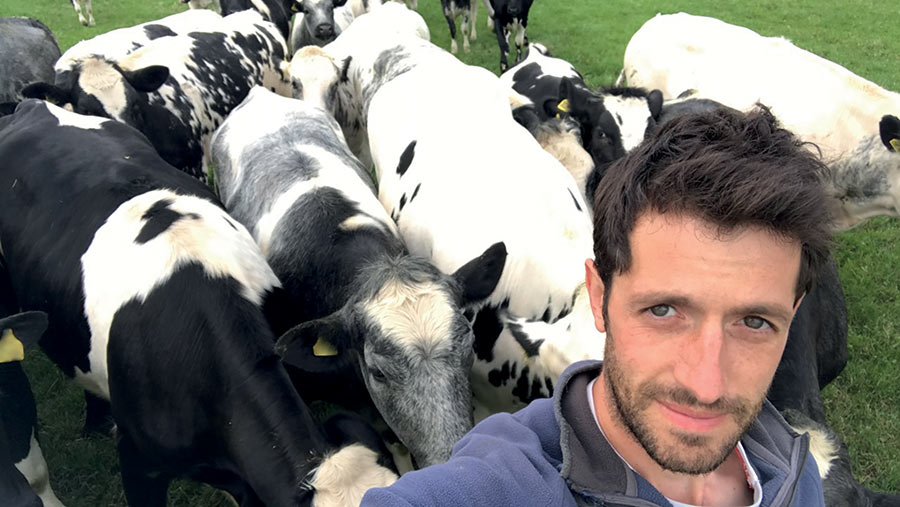Opinion: Colostrum will be key in two-tier calf market
 © Ian Farrant
© Ian Farrant A bit like our scraper tractor, whose throttle has been stuck since the mid 1980s, it takes quite a bit to get me revved up.
But an article in Farmers Weekly a few weeks back got me more excited than an arable farmer on the first day of the shooting season.
The article was about a £9 blood test that allows us to see if a calf has received adequate colostrum in the first few hours of its life.
This might not seem worthy of cork-popping, but it’s a potential game-changer for the dairy beef industry, which produces more than half of our beef.
See also: Opinion – farming and parenting are hard to balance
As farmers, we are all aware of the incredible value of the milk produced in those first few hours.
At the birth of our first child, I phoned my parents to tell them the exciting news, not the name or weight, just that everything was going to be OK because the baby had had its colostrum.
As a dairy beef producer, unfortunately the one moment that will arguably have the biggest bearing on the health and productivity of the animal is out of our hands.
You are buying a calf completely blind, unable to tell what care they received at birth.
It’s not until they encounter stress (like moving farms or a foggy day), that you quickly see whether the dairy farm really follows its colostrum protocols.
Colostrum, and therefore natural immunity, has a direct impact on every aspect of production, from antibiotic use to feed efficiency, daily liveweight gain to meat quality.
All these factors result in a more profitable beast for the farmer, but arguably more importantly, the efficiency gains lead to a far more environmentally sustainable product.
In fact, I’d hazard a guess that the potential benefits would give any half-baked tree-planting idea a run for its money.
It’s not the few that die that cause the real issues, it’s more the ones that struggle on at a reduced growth rate that have the biggest impact on both the bottom line and the wider environment.
If an animal grows just 0.1kg/day slower than its counterparts, getting to 600kg will take an additional two months.
That’s two months of feed, bedding and labour, not to mention additional medical intervention.
And while market forces will ultimately decide what the financial premium will be for a tested calf, I’ll certainly be keen to put my money where my mouth is.
I’m lucky enough to source most of our calves from the dairy farm within our family business.
My cousin and family have a vested, financial interest in making sure every calf gets colostrum within three hours of dropping, as they share in the profits from the beef when it’s eventually sold to the abattoir.
We see significantly fewer health issues in these calves compared to those that we purchased on the open market, even though they are reared in an identical system.
So, to all those dairy farmers who know they do a fantastic job rearing calves, keep it up.
Your hard work is massively appreciated and a £9 investment will hopefully see that hard work turned into a higher calf price.
And to those who know they could tighten up their colostrum protocols, a two-tier calf market is coming, so now is the time to get everything lined up.

